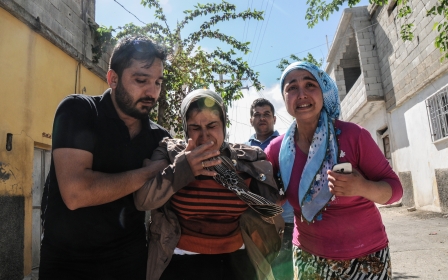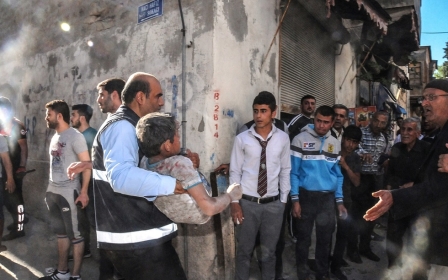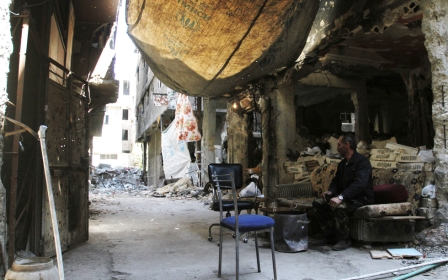US admits to 20 more civilian deaths from air strikes

The Pentagon acknowledged on Friday that 20 civilians were killed in US air strikes on Islamic State (IS) group targets over a five-month period, more than doubling an ongoing tally of such deaths to 41.
Observers were quick to dismiss the toll as "unbelievable," warning that the number is likely much higher given the intensity of the 20-month-old air campaign that has unleashed 12,000 plane and drone strikes, often in urban areas.
The latest figures from US Central Command (CENTCOM) are based on investigations into nine strikes in Iraq and Syria between 10 September and 2 February, including one in Atshanah, Iraq that killed eight civilians and another in the Iraqi city of Ramadi that killed five.
CENTCOM spokesman Colonel Pat Ryder said the United States regretted the loss of life, but said the IS group bore responsibility.
"In this type of armed conflict, particularly with an enemy who hides among the civilian population, there are going to be, unfortunately, civilian casualties at times," Ryder said.
"We do everything we can to avoid it, but that's just the nature of the enemy we are dealing with."
In addition, a total of 28 civilians have been injured in the campaign, the Pentagon claims.
Airwars, a London-based collective of journalists and researchers, uses local sources, photographs and media accounts to keep a detailed list of every known coalition air strike.
They praised Pentagon efforts at accountability compared to other players in Syria such as Russia and the army of President Bashar al-Assad, but the group said the number of likely civilian deaths from coalition strikes is 1,118 at a bare minimum.
"We certainly welcome this latest US admission - we think that is a positive step - but even so, 41 civilian deaths from almost 12,000 air strikes is frankly unbelievable," Airwars director Chris Woods told AFP.
"This is a very intense air campaign. You don't get to drop 500-pound bombs on urban areas and not kill civilians."
The US has led an international coalition that since August 2014 has targeted IS fighters in Iraq and Syria.
Airwars said the victims in the Atshanah and Ramadi strikes appeared to have been families.
New rules on authorising strikes
The latest announcement comes just days after the Pentagon acknowledged that, it has changed since late 2015 how air strikes risking civilian deaths are approved.
Under the new rules, authority now comes from the commanding three-star US general in Baghdad, instead of going through a four-star at CENTCOM's Florida headquarters.
The timing of that decision overlaps with the casualty increase, but the military insists the changes have not lessened oversight standards in determining when such losses are an acceptable risk.
"We take extraordinary precautions to avoid civilian casualties, applying rigorous standards in our targeting process ... Those standards have not changed," said CENTCOM spokesman Captain Bryant Davis.
"Delegating authorities for targeting makes us faster and more agile, but it does not change this fundamental fact."
An attack on 11 January at a cash distribution system near the Iraqi city of Mosul killed one civilian and injured five others, CENTCOM said.
That particular strike drew international attention because military video of the attack showed millions of dollars worth of cash fluttering across the city afterward.
"It's important to put this into perspective that this is an extremely precise air campaign and we take a lot of effort to make sure we are striking what we are intending to strike," Ryder said.
Ryder said the US military had received a total of 162 allegations of civilian deaths. Of these, the military deemed 112 "not credible".
Probes into the rest have either been completed or are in various stages of investigation.
New MEE newsletter: Jerusalem Dispatch
Sign up to get the latest insights and analysis on Israel-Palestine, alongside Turkey Unpacked and other MEE newsletters
Middle East Eye delivers independent and unrivalled coverage and analysis of the Middle East, North Africa and beyond. To learn more about republishing this content and the associated fees, please fill out this form. More about MEE can be found here.




